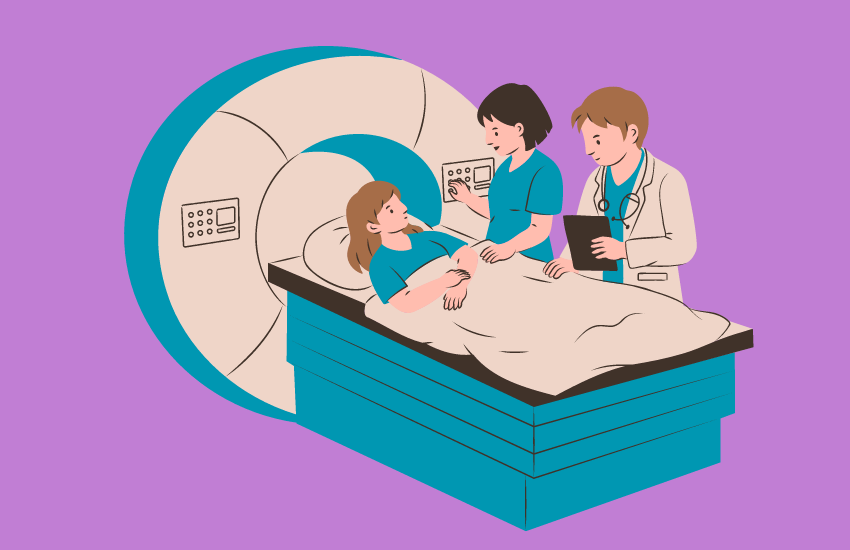
When it comes to medical imaging, MRI scans play a vital role in diagnosing and monitoring various health conditions. However, one common challenge that many patients face is the long waiting time for their MRI scan appointment. While waiting can be frustrating, understanding the reasons behind these delays and exploring ways to navigate them can help ease the experience. Let's delve into the topic of long waiting times during MRI scan services and discover some helpful strategies.
High Demand and Limited Resources
MRI scans are in high demand due to their effectiveness in providing detailed images of the body's internal structures. However, the number of MRI machines and specialized staff available may not always be sufficient to meet the growing demand. This imbalance between supply and demand can contribute to longer waiting times. Healthcare facilities are continuously working to address this issue by expanding their resources and optimizing scheduling processes.
Urgency and Prioritization
In some cases, certain patients require urgent or priority access to MRI scans due to the severity of their condition or the need for immediate diagnosis. This prioritization can result in longer waiting times for individuals with non-emergency cases. While it can be disheartening to wait, it is important to understand that the medical professionals are working diligently to provide timely care to those who need it most.
Complex Procedures and Preparation
MRI scans often involve complex procedures and require careful preparation. The imaging process itself can take a significant amount of time, and additional preparations such as fasting or administering contrast agents may be necessary. These factors can contribute to the overall duration of each MRI scan, leading to potential delays in the scheduling of subsequent appointments.
Communication and Transparency
Clear communication and transparency between healthcare providers and patients are key to managing expectations and minimizing frustration. Healthcare facilities should strive to provide accurate estimates of waiting times, inform patients about any potential delays or cancellations, and maintain open lines of communication for updates and rescheduling. This proactive approach helps patients feel informed and involved in their healthcare journey.
Self-Care and Distractions
Coping with the waiting time can be challenging, but focusing on self-care and finding distractions can help make the experience more bearable. Bring a book, listen to music or podcasts, or engage in relaxation techniques to pass the time. Some healthcare facilities may also offer amenities such as comfortable waiting areas or entertainment options to make the waiting experience more pleasant.
 While long waiting times during MRI scan services can be frustrating, it is important to remember that healthcare providers are doing their best to accommodate all patients. By understanding the underlying factors, maintaining open communication, and practicing self-care, patients can navigate the waiting period with patience and resilience.
Disclaimer: This article is for informational purposes only and does not replace professional medical advice. If you have concerns about your MRI scan or waiting time, please consult with your healthcare provider for personalized guidance and recommendations.
While long waiting times during MRI scan services can be frustrating, it is important to remember that healthcare providers are doing their best to accommodate all patients. By understanding the underlying factors, maintaining open communication, and practicing self-care, patients can navigate the waiting period with patience and resilience.
Disclaimer: This article is for informational purposes only and does not replace professional medical advice. If you have concerns about your MRI scan or waiting time, please consult with your healthcare provider for personalized guidance and recommendations.
 While long waiting times during MRI scan services can be frustrating, it is important to remember that healthcare providers are doing their best to accommodate all patients. By understanding the underlying factors, maintaining open communication, and practicing self-care, patients can navigate the waiting period with patience and resilience.
Disclaimer: This article is for informational purposes only and does not replace professional medical advice. If you have concerns about your MRI scan or waiting time, please consult with your healthcare provider for personalized guidance and recommendations.
While long waiting times during MRI scan services can be frustrating, it is important to remember that healthcare providers are doing their best to accommodate all patients. By understanding the underlying factors, maintaining open communication, and practicing self-care, patients can navigate the waiting period with patience and resilience.
Disclaimer: This article is for informational purposes only and does not replace professional medical advice. If you have concerns about your MRI scan or waiting time, please consult with your healthcare provider for personalized guidance and recommendations.




